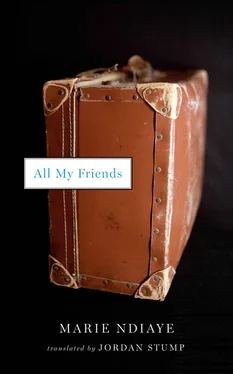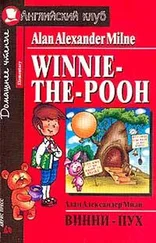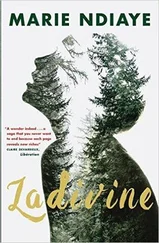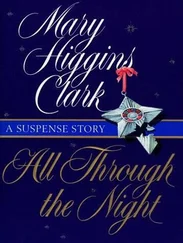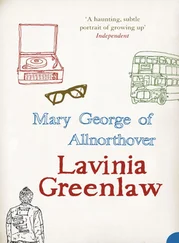“Why, what did Valentin do?” Monsieur Rotor shot back, defensive.
“Your little dog, Jimmy. . Valentin’s torn him to pieces. That funny little dog of yours. He. . ohh. . he cut him in two!”
“I would never have expected that from Valentin,” said Monsieur Rotor.
He looked at Jimmy, offended and disappointed.
“Valentin’s so gentle,” said Madame Rotor, hurt. “He’s the most sensitive, loving animal I’ve ever known. Never had. . a better dog than Valentin.”
Brulard saw Jimmy’s eyes darting miserably this way and that. He blushed violently, and Brulard was moved to observe that he had the face of an alcoholic. Lost, Jimmy stammered incomprehensibly.
“It’s nothing,” he finally mumbled. “Oh, it’s nothing. He. . hadn’t been my dog all that long.”
He looked at Brulard with such anguish that she turned away, deeply pained, telling herself that from now on they were alone, apart, forever.
* * *
“You know what I’m craving? A nice fondue,” Madame Rotor had said.
She’d draped her long blue down coat over her chair, and now she was sitting up very straight, her back nestled in the cushiony heart of her rich angelic raiment, glowing with such indisputable health, self-assurance, and youth that Brulard was half blinded, punch drunk.
They were sitting in a restaurant the Rotors had chosen. The Great Dane lay under the table, and Brulard saw the corners of Jimmy’s dry lips twitch whenever Valentin licked his calf, which he did to Jimmy more than to anyone else.
Whisking her hair behind her neck with a silken toss of the head, Madame Rotor repeated in a very slightly authoritarian voice:
“Do you know what I’m craving?”
“A nice fondue,” Jimmy murmured.
Lulu came in.
At first Brulard paid her only a distracted and weary sort of mind, for was this not yet another new form adopted by Eve Brulard in an attempt to convey all manner of unintelligible things? This Lulu, her short hair dyed orange (Brulard had left behind a Lulu with a long mane untouched since childhood), was entering in the wake of a loud, oversized family Brulard recognized as the Alphonses. Brulard had scrupulously avoided all contact with the Alphonses for years. She lowered her eyes. But how likely was it that Eve Brulard could divide herself into so many replicas, and take on the appearance of four expansive, guffawing Alphonses? It wasn’t likely at all.
Lulu pulled out a chair and sat down with the same wondrous nonchalance as when she wore her hair long. Blinded and deafened by their own deafening racket, the Alphonses seemed not to have noticed Jimmy or Brulard. Then Lulu’s eyes coldly met Brulard’s, and Brulard realized that this was indeed her daughter Lulu, and not, by some miracle, herself as a girl.
Jimmy was very pale. He started to his feet, about to go talk to Lulu. Then he thought better of it and slowly turned away to hide from the Alphonses. Was he still thinking about his dog? Brulard wondered, deeply moved. Was he thinking about his dog with sadness and guilt?
Lulu was laughing with the Alphonses.The indecency of their laughter covered Brulard’s forehead with a delicate cold sweat. She sensed Lulu’s gaze, landing sometimes on her and sometimes on Jimmy, and that gaze, Brulard felt sure, was heavy with scorn and resentment. Were the four Alphonses, Lulu seemed to be saying, in their flawless camaraderie, in their full-hearted gaiety, not better than them, her inconstant, poisonous, penniless parents?
“Those people are very annoying,” said Madame Rotor aloud.
She went on, her square chin extended toward Jimmy:
“Aren’t those people annoying, incredibly annoying? Loire?”
Surely alerted, thought Brulard, by the use of his last name rather than the usual jocose “Jimmy!” and also, thought Brulard, by the very perceptible cooling, which he must have felt just as she did, of his newfound relationship with the Rotors in the wake of the dog incident, which the Rotors unmistakably blamed on him, Jimmy thought it best to exclaim, in a sharp little voice:
“They are indeed! Very annoying.”
Her parents were absolutely not to approach her, neither the one nor the other: that, Brulard realized, was what this young orange-haired Lulu was proclaiming, mutely but clearly, with her hard, vindictive gaze over the tables between them, protected by the beaming Alphonses, impregnable in their crassness. And also that her parents had betrayed her — and how was she supposed to get over that?
At the end of the meal, all through which Brulard felt only a vague awareness of her own silence, Madame Rotor picked up one of the many newspapers hung from wooden rods on the wall beside her. The wine had left her very merry and full of quips. As a joke, she read out the headlines, adopting a joyful tone when the news was grim, and a gloomy one when it was trivial. Brulard wasn’t listening, and heard none of the words that involved her. Nevertheless, she saw Jimmy staring at her with a sort of panic.
“What an idea,” said Monsieur Rotor, “doing yourself in when you’ve got it all. People in movies have it all. That guy had it all. Oh yes, they’ve got it all. Isn’t that right, Loire?”
“I don’t know anything about it,” said Jimmy slowly, never taking his eyes off Brulard.
The last tranquil, almost cold thought that came to Brulard was that no one had ever looked at her with so much compassion or friendship. hat. .?
This woman and her son had walked the long road from their house to the bus stop, and because for two months it had rained without respite, not even one morning or a few hours in the night without rainfall, the road was now only a muddy trail between the plowed fields.
Now and then the son observed that you couldn’t tell the road from the fields anymore, and the woman patiently pointed out that the fields were dark brown, almost black, apart from the glistening, stagnant puddles in the corners, while the waterlogged road was still a dull gray.
He nodded, as if thoroughly pleased with this answer. They walked on in silence for a few moments, then the son said again, as if making a startling discovery, “. . can’t tell the road from the fields, do you see,” and within herself the woman was once again painfully surprised that he could repeat the most trivial thoughts with the same untarnished fascination, but she answered him gently, patient, detached, no longer listening to herself. And he nodded gravely, his brow clenched in concentration, and the woman’s words seemed to her absurd and even enigmatic in their utter banality, and suddenly she wanted to laugh out loud at the both of them, at their senile prattle, but she did no such thing, she didn’t even smile, knowing the son was now beyond all understanding or perception of irony. That thought left her morose until her son said again: “. . isn’t it funny, you can’t tell the. .,” turning toward her in search of an explanation, then her irritation and torment banished all sadness for a time, and the woman carefully put on a voice and expression adapted to what she thought she knew of the thing in him that was broken, the thing that had broken.
He’s unbearable, she sometimes thought. And also: he seems not so much insane as stupid, appallingly stupid.
She was angry with herself for that. This son was not cruel. His capacity for meanness had waned even as the mother’s aggressive rancor grew. She realized that her despair and her rage were fueled by nothing other than the progressive disappearance of those emotions in the son.
No, this son wasn’t cruel, alas. And they would both take the bus to Rouen, since the rain had at long last stopped falling, but that evening the woman would come home to Corneville alone.
Читать дальше
